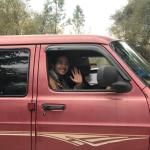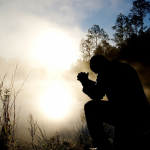* I just finished, and I’d like to discuss with all our readers 🙂
* The book is very informative, but not clinical. It is engaging and written to the layperson.
* You will increase your vocabulary by reading just one chapter. The author, Michael Pollan, is an amazing writer, and witty and funny. I have never laughed so hard at someone describing their experience eating a McDonald’s meal.
* Pollan gives you a very clear picture of where the food on your dinner table is coming from. He studies various “food chains”, starting with the industrial (your typical supermarket or restaurant), moving onto the industrial organic (e.g., Whole Foods), then onto the beyond organic local farm, and he finally finishes with the hunter-gatherer (it’s fascinating to read about the hunting adventures of a nerdy Berkeley professor).
* Pollan is an extremely down-to-earth guy. He’s not a vegetarian, or a self-righteous organic snob. He’s just a smart guy who cares about food.
* The book is a good story in that it’s biographical. Pollan talks about his own personal experiences in coming to grips with the origins of the foods he is eating.
* Pollan is not a liberal in the common sense of the word because he deeply appreciates the importance of culture, tradition, and custom. The lessons he draws from food can be applied to other important cultural norms.
*Where else can you read about a cosmopolitan professor, who, for the sake of understanding his subject, makes himself kill chickens and hunt wild boar?!?
* If you are reading this, you are probably a mom who has control over most of the food buying in your family, and therefore has a heightened responsibility to make informed food purchases (this is my way of making you feel guilty for not reading the book).
* My husband, Mr. Red, has become so inspired that he’s considering killing our Thanksgiving Turkey with his own hands.
* If you are depressed after reading the book, he has written a more uplifting and solution-based sequel (so I’ve heard)–In Defense of Food. I’m on to that next. And don’t just read the sequel, that’s lame.
Caveats:
* Sometimes Pollan gets carried away giving way too many details about certain topics that I would consider peripheral. For example, I definitely learned way more than I ever wanted to about corn and fungi.
* The book is a bit redundant, and could be at least 50 pages shorter (it’s a 400 page read).
* He’s way too into theorizing about the evolutionary explanation for ALL natural phenomenon. I mean, sometimes things happen in nature and it just isn’t necessary to theorize as to how that event is a part of natural selection.
If you have read it, or are considering reading it and have questions, let’s chat!











